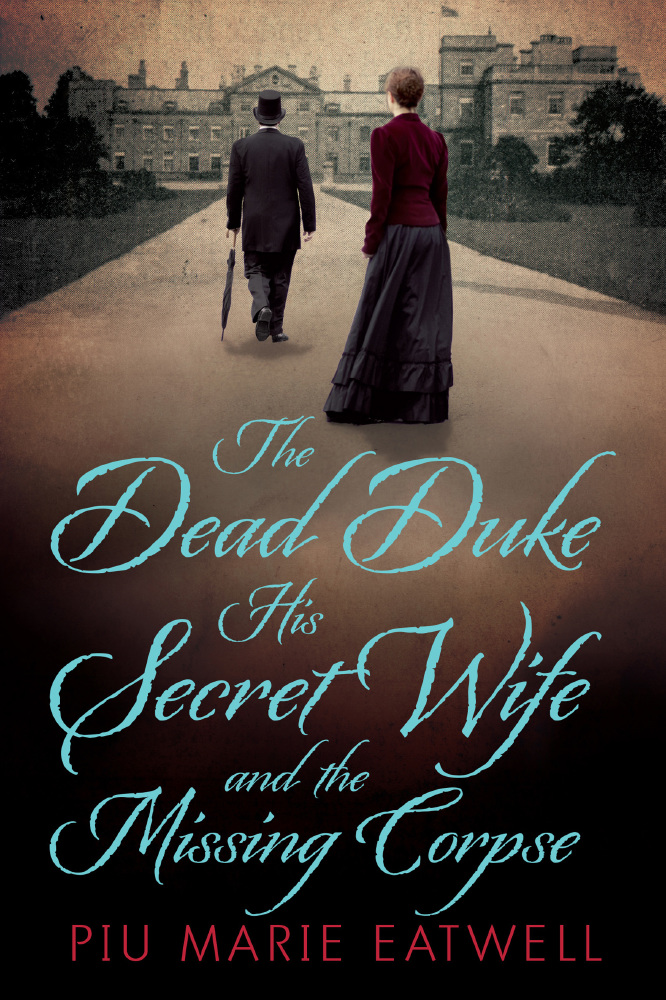Nobody can turn you into a bestselling writer, be it in true crime or any other genre. That potential lies only in yourself. However, there are a number of tips and tricks which it's worth knowing before embarking on a true crime book, and which can certainly maximize your chances of success. Here are some of the things I've learned:

The Dead Duke, His Secret Wife and the Missing Corpse
Pick your crime carefully. Whether you're looking to write about a Victorian family murder or a 1970s serial killer, research the market carefully before you even think of putting pen to paper. What other books, if any, have been written about this particular crime? If there have already been several recent books on the subject (which will likely be the case with high-profile crimes), you may need to find a new or different angle to persuade a publisher to take the book on.
Make sure you will be able to research your subject effectively. This might seem obvious, but if you live in Birmingham, it might be tricky to research a crime which occurred in Australia. Generally, crimes that took place before the 1840s (prior to the first proper Census returns) are much harder to research, so if you're keen on writing about earlier periods, a fictional narrative might be a more practical option.
Read as much as you can about the period in which your crime took place. Unless your crime is very recent, you will likely need to do a great deal of background research to transport your reader convincingly to the time and place in which the events occurred. Even in the 1980s, clothes, hairstyles, and slang were quite different from today (remember doodlebugs, ra-ra-skirts, pixie boots and Dynasty? If you don't, you'll need to check them out if your book is set in the '80s…). By the time you've finished your book, you should be walking, talking, and thinking like an Edwardian (or whatever period in which your book is set!)
Make sure your research is detailed and accurate. I make detailed notes and references during my research - it makes it so much easier when I get round to writing the final book. Readers expect a high degree of accuracy in true crime these days, so I tend to add endnotes with sources - they don't interrupt the flow of the book, but are there for the readers who want to know where all the information came from.
Decide on your narrative approach early on. True crime is a very exciting genre, with lots of innovative developments. You don't need to limit yourself to the traditional non-fiction approach of a third-person narrator - you can adopt the point of view of different people, or tell the story from your own perspective as a writer investigating the crime. However, whatever your approach is, you need to be consistent - and, if you're writing a narrative, you'll need to structure the story effectively, with suspense and all the other page-turning elements normally found in fiction.
Decide on your limits. If you are going to adopt a more dramatic or story-driven approach, you need to think carefully what the limits are going to be. I generally think that it's fine to venture 'inside the heads' of my characters and reveal what they are thinking, but I never invent actual dialogue or events. To do so would, in my view, be straying into the territory of fiction. You need your readers - however much they are caught up in the story - to be convinced, at all times, that it is true. Start making things up, and you will lose their confidence.
Decide on your writing style. Are you, for example, going to replicate the style of writing of the period in which your book is set? Whilst it's generally preferable to write in a straightforward contemporary style, some historical crime books make very effective select use of contemporary language. Good examples are the use of swear words in the best-selling fictional historical crime book The Devil in the Marshalsea by Antonia Hodgson, or the spelling of the word 'clue' as 'clew' in William J. Mann's dark Hollywood noir murder tale , Tinseltown.
Proposal. Once you have picked your subject, you will need to prepare a proposal for an agent or publisher. For this, you will need to submit the first three chapters of your book (you don't need to have completed it yet), plus a synopsis, list of similar or competing books, biography, and the sources you intend to use. Expect to wait for at least two months before getting replies.
Deal with rejection. Expect to get roughly 5 rejections for every success. This is part of the course for all writers, and you simply have to keep on. Never give up.
Move on if you need to. If - for whatever reason - a particular subject just doesn't "bite" after a year or so of trying, put it aside for another day. I have at least three partly-researched historical crime projects, which never came off, for various reasons. I've simply filed away the research and moved on, for the moment. Their time will come, another day….
Good luck and get writing!

